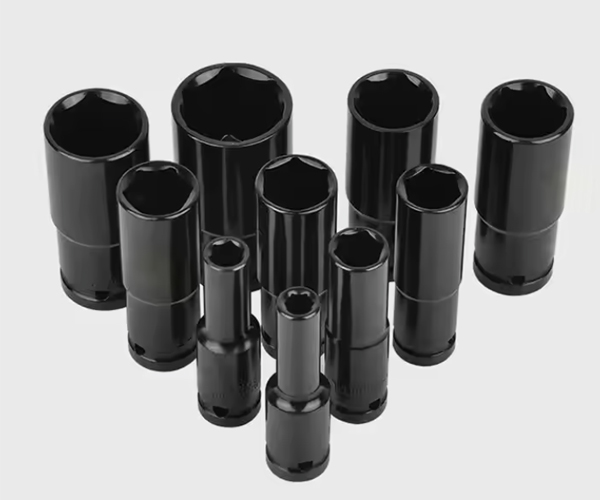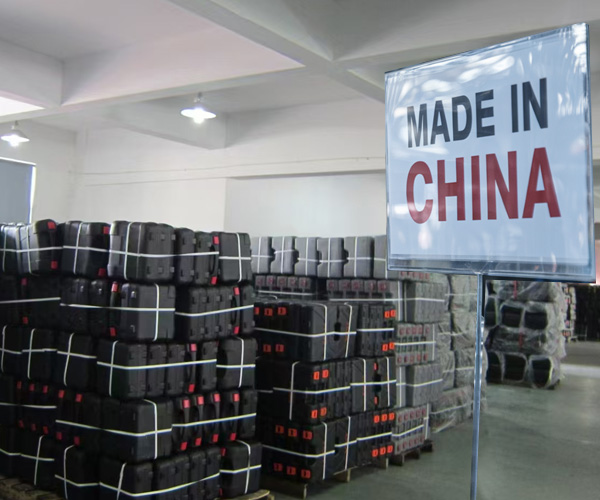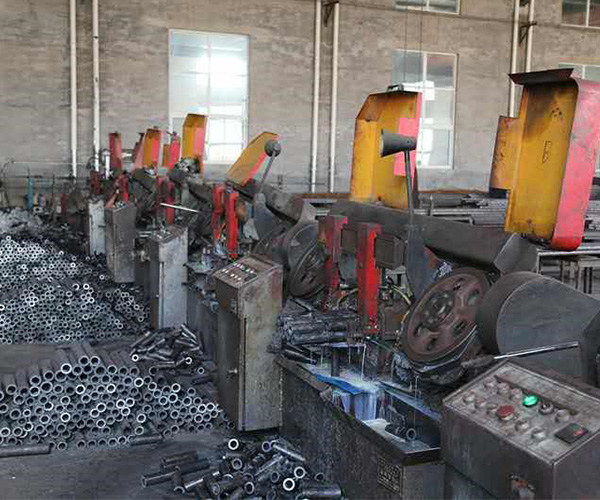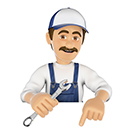Introduction
When it comes to automotive repair, the right tools can make all the difference. Choosing the correct socket size for the job at hand is essential, not just for efficiency but also for safety. Whether you’re working on routine maintenance tasks or tackling more complex repairs, having a quality long socket set in the right sizes can streamline your process and ensure that bolts, nuts, and fasteners are removed and installed properly.
This article provides an in-depth guide to selecting the ideal socket size for various automotive tasks. We’ll explore everything from the differences between SAE and metric systems to socket drive sizes, and from key features to look for in a reliable impact long socket set supplier to practical tips for making the best choice for your needs. By the end of this guide, you’ll be equipped to select a socket set that suits your specific requirements, whether you’re a DIY mechanic or a professional looking to stock up on MRO (Maintenance, Repair, and Overhaul) supplies.
Understanding Socket Sets for Automotive Work
What is a Socket Set?
A socket set is one of the foundational tool kits for anyone involved in automotive repair, whether it’s for professional purposes or at-home maintenance. In simple terms, a socket set contains a variety of cylindrical tools—sockets—that fit over the head of bolts and nuts. Each socket has a square hole on one end, which fits onto a tool handle called a “ratchet.” By combining sockets of different sizes with a ratchet, you gain the ability to tighten or loosen nuts and bolts of varying dimensions across different applications.
Sockets are available in a range of types, but here, our focus will be on long sockets. Unlike standard sockets, long or deep sockets have a greater length, allowing for access to bolts and nuts that are recessed or located deep within components. This extra reach makes long socket sets a highly valuable addition to any toolkit, especially for automotive work where bolts are often in hard-to-reach locations.
Why Use Long Sockets in Automotive Work?
Long sockets have a number of advantages over their shorter counterparts, particularly in automotive applications. Here’s why:
- Extended Reach: Long sockets are ideal for bolts that are set deeper into an engine block, body frame, or other automotive components. The additional length enables you to reach nuts and bolts that would otherwise be inaccessible with standard sockets.
- Versatility Across Jobs: Many automotive tasks, from engine repairs to brake work, require the flexibility that long sockets provide. They allow for efficient work on components that are tightly packed, especially in modern vehicles where space can be restricted.
- Reduced Risk of Stripping: Because long sockets can often cover a larger portion of a bolt, they provide better engagement with the bolt head, reducing the risk of stripping or damaging it. This feature is essential for maintaining the integrity of your vehicle’s components over time.
- Improved Control and Torque: In automotive work, precision is key. Long sockets enable a secure fit on the bolt head, allowing for greater control and more torque. This is particularly important in tasks like engine assembly or suspension adjustments, where excessive force could damage sensitive parts.
In summary, long sockets are an excellent investment for anyone performing regular automotive work. Their design enhances reach and versatility, and they enable efficient access to bolts in recessed or hard-to-reach places, making them a go-to choice for many mechanics and repair professionals.

Key Factors to Consider in Choosing Socket Size
Measurement System: SAE vs. Metric
When selecting a long socket set, one of the first decisions you’ll face is whether to choose sockets based on the SAE (Society of Automotive Engineers) or metric measurement systems. This distinction is crucial as it determines which sizes will fit the fasteners in your vehicle.
SAE Sockets are measured in inches and are primarily used in vehicles produced in the United States. This includes many domestic cars, trucks, and motorcycles. On the other hand, Metric Sockets are measured in millimeters and are more commonly found in vehicles manufactured by European and Asian companies.
For instance, a standard bolt may require a 10mm metric socket or a 3/8-inch SAE socket, depending on the manufacturer. If you’re working on a mix of vehicles, it’s essential to have both types of sockets in your toolkit.
Many mechanics recommend having a comprehensive socket set that includes both SAE and metric sizes. This dual approach allows for maximum flexibility, ensuring you’re prepared for any job without the frustration of not having the right tool.
Drive Sizes Explained: 1/4″, 3/8″, 1/2″, 3/4″, and 1″ Drives
Another important consideration is the drive size of the sockets, which refers to the size of the square opening that fits onto the ratchet or breaker bar. The most common drive sizes are 1/4”, 3/8”, 1/2”, 3/4”, and 1”. Here’s a breakdown of each:
- 1/4” Drive: This size is ideal for small, lighter-duty tasks. It’s commonly used for smaller bolts found in engine compartments and interior components. If you’re working on smaller vehicles or doing precision work, a 1/4” drive set is a must.
- 3/8” Drive: The 3/8” drive is a versatile option that balances size and torque. It’s commonly used for most automotive tasks, including removing and tightening bolts on engines, suspension systems, and many other components.
- 1/2” Drive: This drive size is best suited for heavy-duty tasks, such as working on larger engines, trucks, and heavy machinery. It provides the necessary torque for bigger fasteners.
- 3/4” and 1” Drives: These are primarily used for heavy machinery and are less common in standard automotive work. However, if you’re involved in commercial automotive repair or heavy equipment maintenance, these sizes can be invaluable.
Choosing the correct drive size is crucial for the job at hand. Using a drive that’s too small for a particular task can result in stripped fasteners or damaged tools, while using one that’s too large may lead to excessive torque that can harm the component you’re working on.
Point Configurations: 6-Point vs. 12-Point Sockets
Another aspect to consider is the configuration of the socket points. Sockets come in either 6-point or 12-point configurations:
- 6-Point Sockets: These sockets feature six points of contact with the bolt or nut, providing a stronger grip. They are ideal for heavy torque applications and are less likely to slip or round off the fastener head, making them the preferred choice for automotive repairs.
- 12-Point Sockets: With twelve points of contact, these sockets can engage with fasteners at more angles. They are useful for working in tight spaces where positioning might be difficult. However, they can be more prone to slipping, especially under high torque.
For most automotive work, 6-point sockets are recommended due to their strength and reliability. However, having a few 12-point sockets in your arsenal can be beneficial for specific applications.
Socket Depth: Shallow vs. Deep vs. Extra-Deep Sockets
When it comes to socket depth, you’ll encounter shallow, deep, and extra-deep sockets:
- Shallow Sockets: These are typically used for fasteners that are easily accessible. They’re lighter and can fit into tighter spaces but don’t provide the reach needed for deeper bolts.
- Deep Sockets: These sockets are designed for deeper applications and are commonly used for spark plugs and other components that are recessed. The extra depth allows for a secure fit over longer bolts and nuts.
- Extra-Deep Sockets: These provide even more length and are ideal for applications that require additional reach. They’re often used in specialized situations, such as working on certain automotive engines or components.
When selecting a socket set, it’s essential to consider the types of jobs you’ll be doing. A combination of shallow and deep sockets will allow you to tackle a wide range of tasks effectively.
Typical Socket Sizes Needed for Common Automotive Tasks
Overview of Essential Socket Sizes
To navigate automotive repairs effectively, it’s helpful to know which socket sizes are commonly used. Below is a list of essential sizes that can cover a broad array of tasks:
- Spark Plug Sockets: Typically 5/8” or 13/16” for most vehicles.
- Wheel Lug Nuts: Common sizes include 19mm, 21mm, or 7/8” depending on the vehicle make.
- Oil Drain Plug: Often 13mm or 15mm.
- Suspension Components: Sizes may vary, but 17mm to 19mm are commonly needed.
- Engine Bolts: Ranges from 10mm to 18mm for various applications.
Having a socket set that includes these sizes ensures that you’re prepared for routine maintenance and common repairs.
Recommended Socket Sizes for Specific Automotive Jobs
Here’s a more detailed look at socket sizes needed for specific automotive tasks:
- Engine Repair:
- Spark Plugs: Usually require a deep socket of 5/8” or 13/16”.
- Cylinder Head Bolts: Sizes can vary widely, but often range from 10mm to 16mm.
- Suspension and Brake Work:
- Brake Caliper Bolts: Typically 12mm or 14mm.
- Strut Mounts: Often require 17mm to 19mm sockets.
- Body and Frame Maintenance:
- Bumper Bolts: Usually 10mm or 12mm.
- Frame Bolts: Common sizes range from 18mm to 21mm.
Specialty Socket Sizes for Unique Automotive Repairs
While the common sizes listed above will cover many tasks, there are also unique situations where specialty socket sizes may be required. For instance, some vehicles use unique fasteners or sizes not found in typical socket sets. In these cases, it may be beneficial to purchase a specialized socket or set that fits your specific vehicle model.
Materials and Quality: What to Look for in a Durable Socket Set
Materials Used in Socket Manufacturing
When investing in a long socket set, the material used in manufacturing is critical to the performance and longevity of the tools. Here are some common materials you’ll encounter:
- Chrome Vanadium Steel: This is one of the most commonly used materials for socket manufacturing. It offers a good balance of strength, durability, and resistance to wear. Chrome vanadium sockets can withstand significant torque and are less likely to rust, making them ideal for automotive work.
- Chrome Molybdenum Steel: Known for its toughness, this material is often used for impact sockets. Chrome moly sockets can withstand the high torque and impact stresses that come with power tools, making them a popular choice for heavy-duty applications.
- Stainless Steel: While less common, some higher-end socket sets may use stainless steel for its corrosion resistance. These sockets tend to be more aesthetically pleasing but are typically more expensive.
Finish Types: Chrome vs. Impact Finish
The finish of a socket can also impact its performance and durability:
- Chrome Finish: This is a popular choice for hand sockets. Chrome plating protects the steel underneath from rust and corrosion, ensuring longevity. However, chrome sockets may not hold up as well under high-impact applications compared to impact-rated finishes.
- Impact Finish: Impact sockets often have a black oxide or similar finish, which enhances durability under heavy loads. These sockets are designed to withstand the rigors of impact tools without cracking or breaking, making them essential for automotive work that requires a power tool.
Impact vs. Non-Impact Sockets
Understanding the difference between impact and non-impact sockets is crucial for selecting the right tools for your tasks.
- Impact Sockets: These are designed to handle the intense torque and force generated by impact wrenches and guns. They are typically made from thicker materials and feature a different design to absorb shock, making them more durable for heavy-duty applications.
- Non-Impact Sockets: Generally used with hand tools or ratchets, these sockets are lighter and more suited for lighter tasks. They can be used for most automotive work but may not withstand the force from an impact wrench.
For anyone regularly working with power tools in automotive repair, investing in high-quality impact sockets is highly recommended.
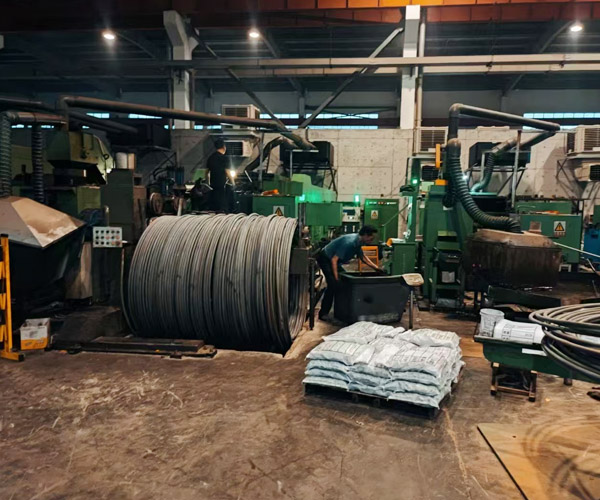
Socket Set Accessories: What Else Should You Have?
Extensions and Adapters
In addition to the sockets themselves, having a range of extensions and adapters can greatly enhance your socket set’s functionality.
- Extensions: These tools increase the reach of your sockets, allowing you to access fasteners located deep within the engine or in tight spaces. Extensions come in various lengths, and having a few different sizes in your toolkit can save you time and hassle.
- Adapters: Socket adapters allow you to use sockets of different drive sizes on a single ratchet. For example, if you have a 1/2″ drive ratchet but need to use a 3/8″ socket, an adapter will enable you to make that connection seamlessly.
Universal Joints and Flex Handles
Universal joints and flex handles are other accessories that can provide much-needed versatility in your socket set.
- Universal Joints: These adapters allow your socket to pivot at an angle, making it easier to access fasteners in hard-to-reach locations. They are invaluable for tasks that require working at awkward angles, such as behind an engine block or under a vehicle.
- Flex Handles: Similar to universal joints, flex handles provide additional leverage and can also bend to reach fasteners at different angles. This feature can be particularly helpful in tight spaces where a standard ratchet would not fit.
Organizers and Storage Options
Assembling a comprehensive socket set can quickly lead to disorganization if not properly managed. Keeping your tools organized not only saves time but also prolongs their lifespan. Here are some storage solutions:
- Socket Organizers: These come in various styles, from magnetic strips to tiered trays. They help keep your sockets sorted by size, making it easier to find what you need quickly.
- Toolboxes and Chests: Investing in a sturdy toolbox or chest can provide a secure location for all your tools, including sockets. Look for models with drawers or compartments specifically designed for organizing socket sets.
- Portable Cases: For mobile mechanics or those who work in multiple locations, a portable socket case can keep everything organized and easily transportable.
Tips for Choosing the Right Socket Set Size and Quality
Determining the Size Range You Need
Before making a purchase, evaluate the types of jobs you’ll be undertaking. Consider whether you’ll primarily be working on domestic vehicles, foreign cars, or a mix of both. This evaluation will help you determine whether to prioritize SAE, metric, or both socket sizes in your set.
Quality vs. Quantity: Which to Prioritize?
When it comes to socket sets, quality should generally take precedence over quantity. A smaller set of high-quality sockets will often outperform a larger set of lower-quality options. Consider investing in well-reviewed brands that offer durability and reliability. You may find that a high-quality impact long socket set from a reputable supplier will last much longer and perform better than a larger, less reliable set.
Price Considerations for Socket Sets
The price of socket sets can vary widely based on brand, materials, and features. On average, a decent long socket set can range from $50 to $200 or more. It’s wise to set a budget based on your needs but remember that investing in a quality set can save you money in the long run by reducing the need for replacements.
Evaluating Brand Reputation and Warranty
When purchasing tools, brand reputation can provide insights into the quality and reliability of the products. Look for suppliers that offer warranties on their tools. A strong warranty indicates confidence in the product’s durability. Brands with good customer service can also make your buying experience smoother if issues arise.
FAQ: Common Questions on Choosing Long Socket Sets for Automotive Work
Do I need both metric and SAE sizes?
Having both metric and SAE sizes in your toolkit is highly beneficial, especially if you work on various vehicles. This combination ensures that you’re prepared for any task, regardless of the measurement system used in the vehicle’s design.
Can I use a 12-point socket on a 6-point bolt?
While it’s technically possible to use a 12-point socket on a 6-point bolt, it’s not recommended. The design of the 12-point socket can cause slippage under high torque, leading to rounding off the bolt. For the best results, match your socket configuration to the bolt type.
How do I know if I need impact sockets?
If your work involves using power tools like impact wrenches or you frequently deal with high-torque applications, investing in impact sockets is essential. Their design is meant to handle the increased stress and prevent damage during use.
What’s the difference between regular and deep sockets for automotive work?
Regular (shallow) sockets are suitable for easily accessible fasteners, while deep sockets are designed for deeper, recessed fasteners. The choice between the two depends on the specific applications and the accessibility of the fasteners you’re working with.
Conclusion
Choosing the right long socket set is a critical step for anyone engaged in automotive work. From understanding the differences between SAE and metric measurements to knowing which materials and accessories will enhance your socket set, this comprehensive guide aims to equip you with the knowledge needed to make an informed decision.
As you consider your options, remember to evaluate your specific needs based on the types of jobs you’ll be performing. Investing in a quality set from a reliable impact long socket set supplier can enhance your efficiency and success in automotive repairs. With the right tools in hand, you’ll be ready to tackle any project that comes your way. Happy wrenching!
If you’re ready to equip yourself with a reliable long socket set for your automotive needs, look no further! At KOLARWIN, we specialize in providing high-quality hand tools, including impact long socket sets tailored for professional and DIY mechanics alike.
Explore our extensive selection of automotive tools designed to enhance your efficiency and precision. Whether you’re a seasoned mechanic or just starting out, we have the perfect tools for you.
Contact us today for competitive pricing and exceptional service. Let KOLARWIN be your trusted partner for all your tool needs. Visit our website or reach out to us directly to learn more about our products and how we can help you succeed in your automotive projects!


